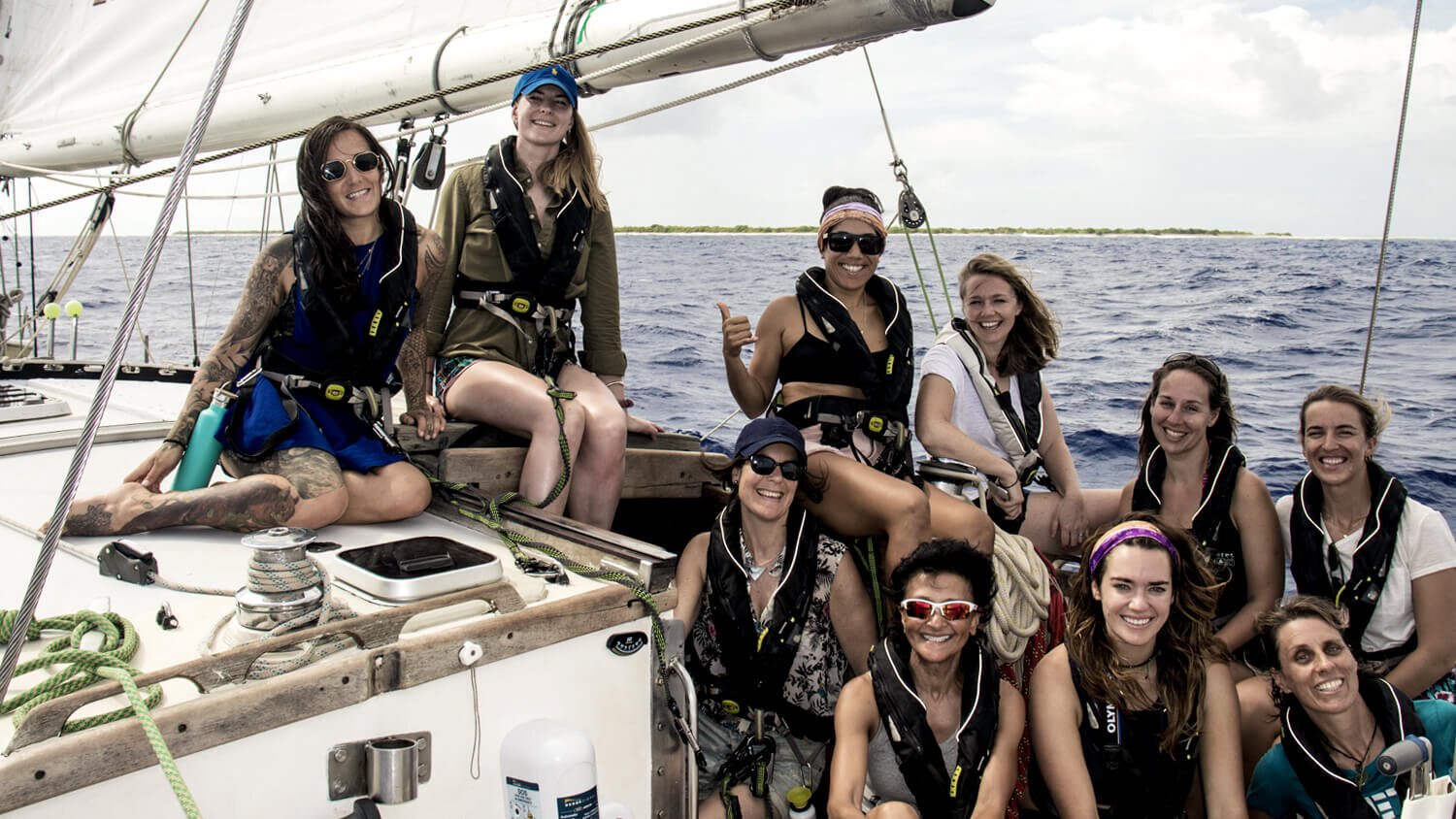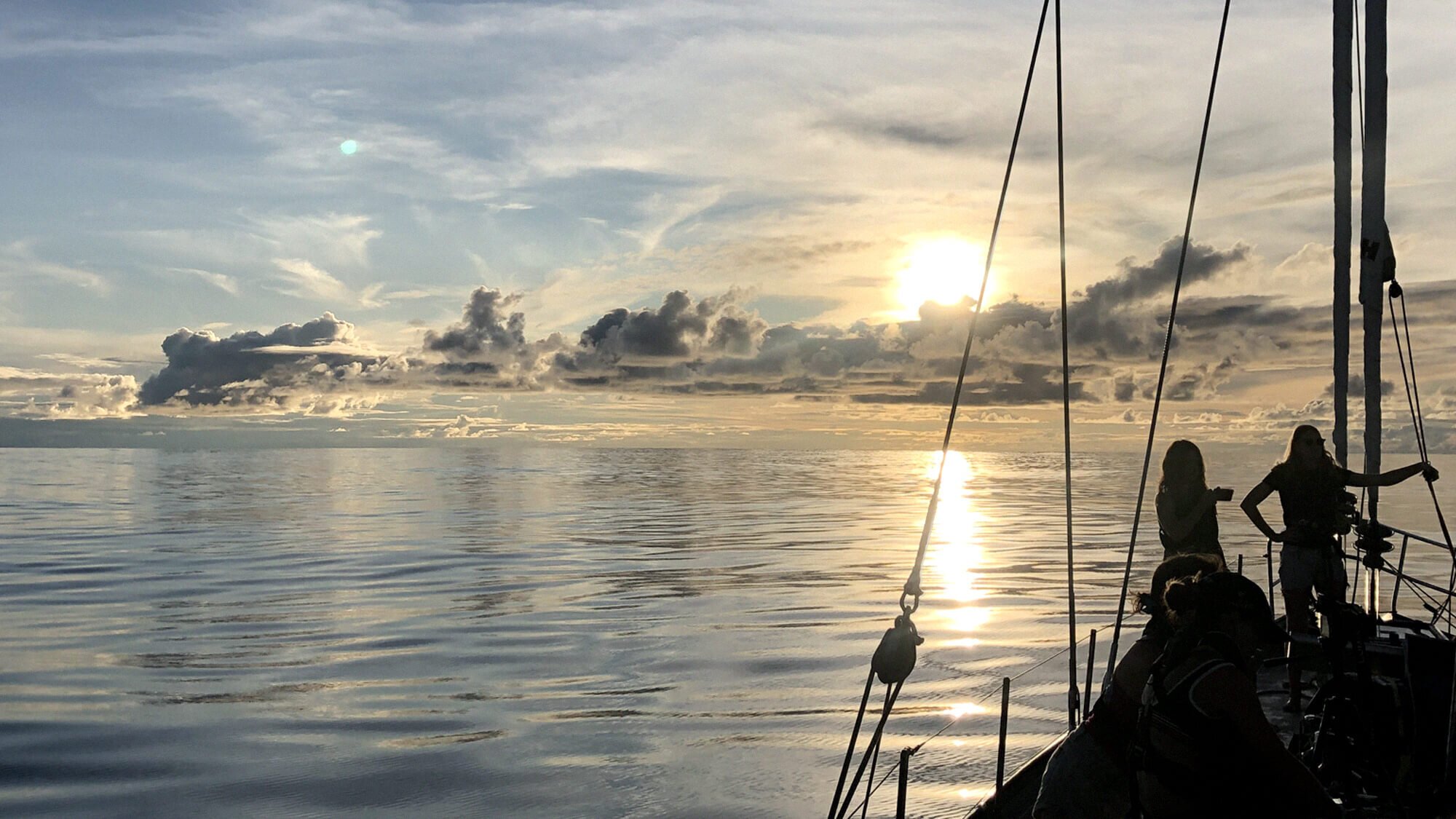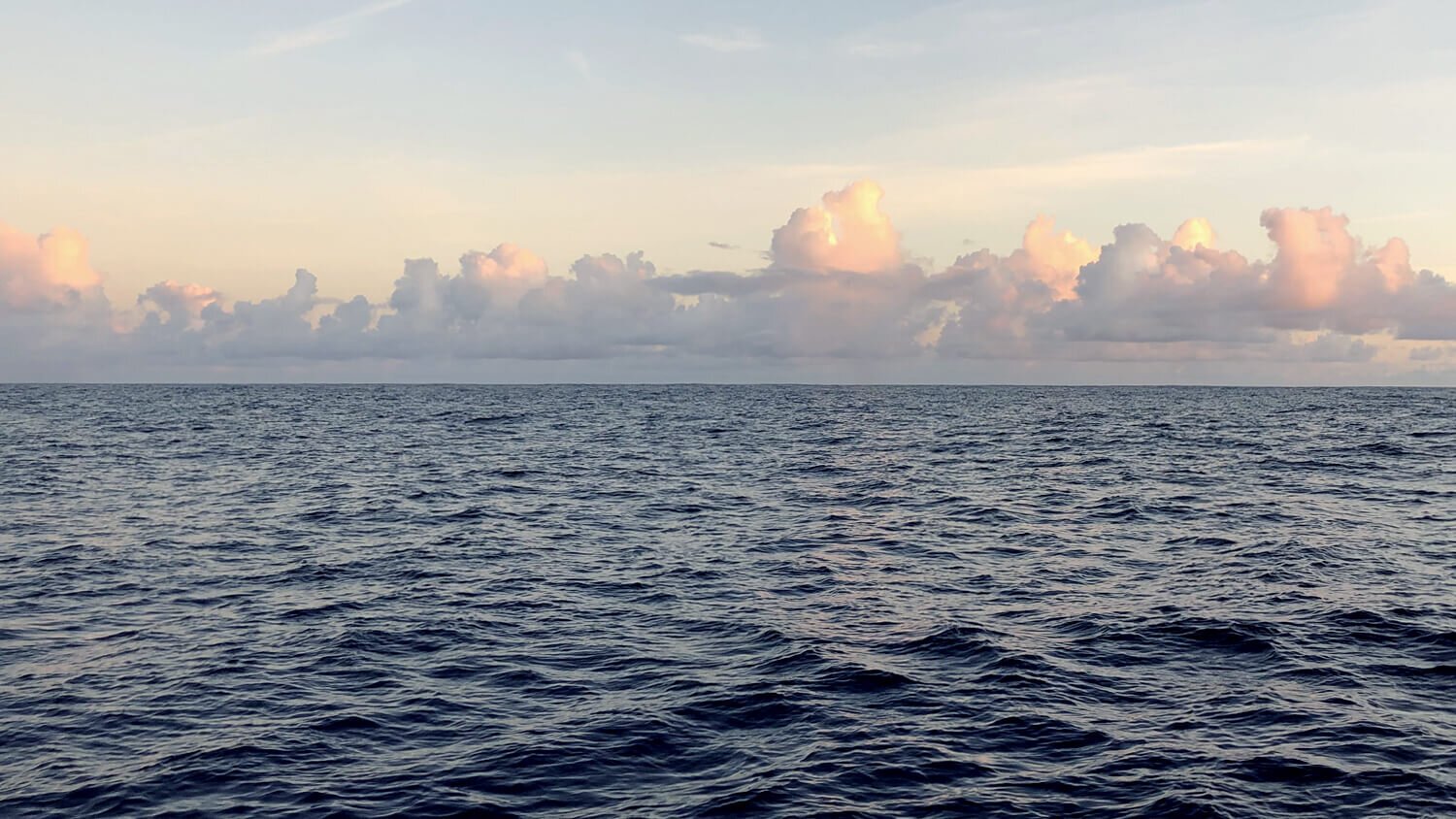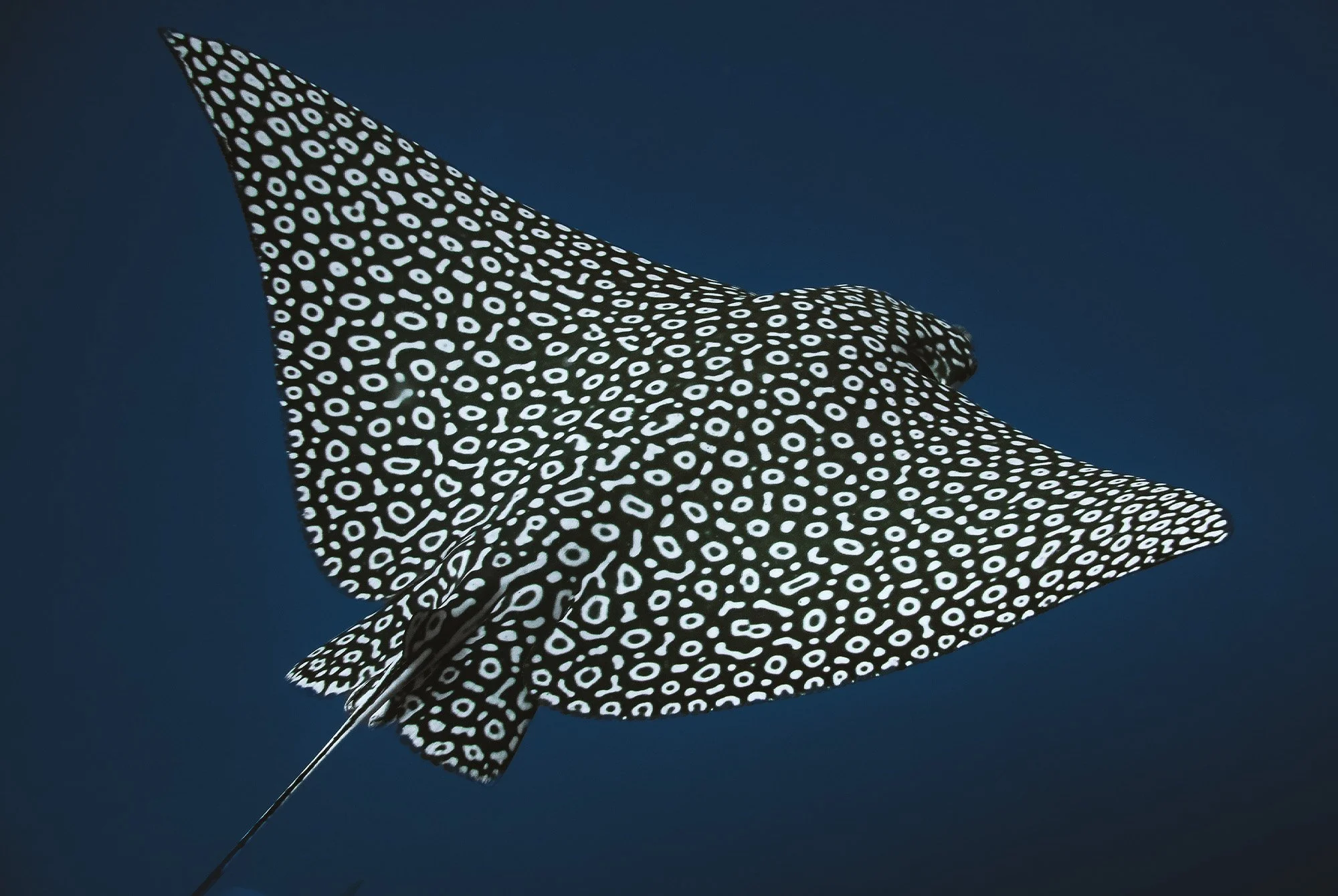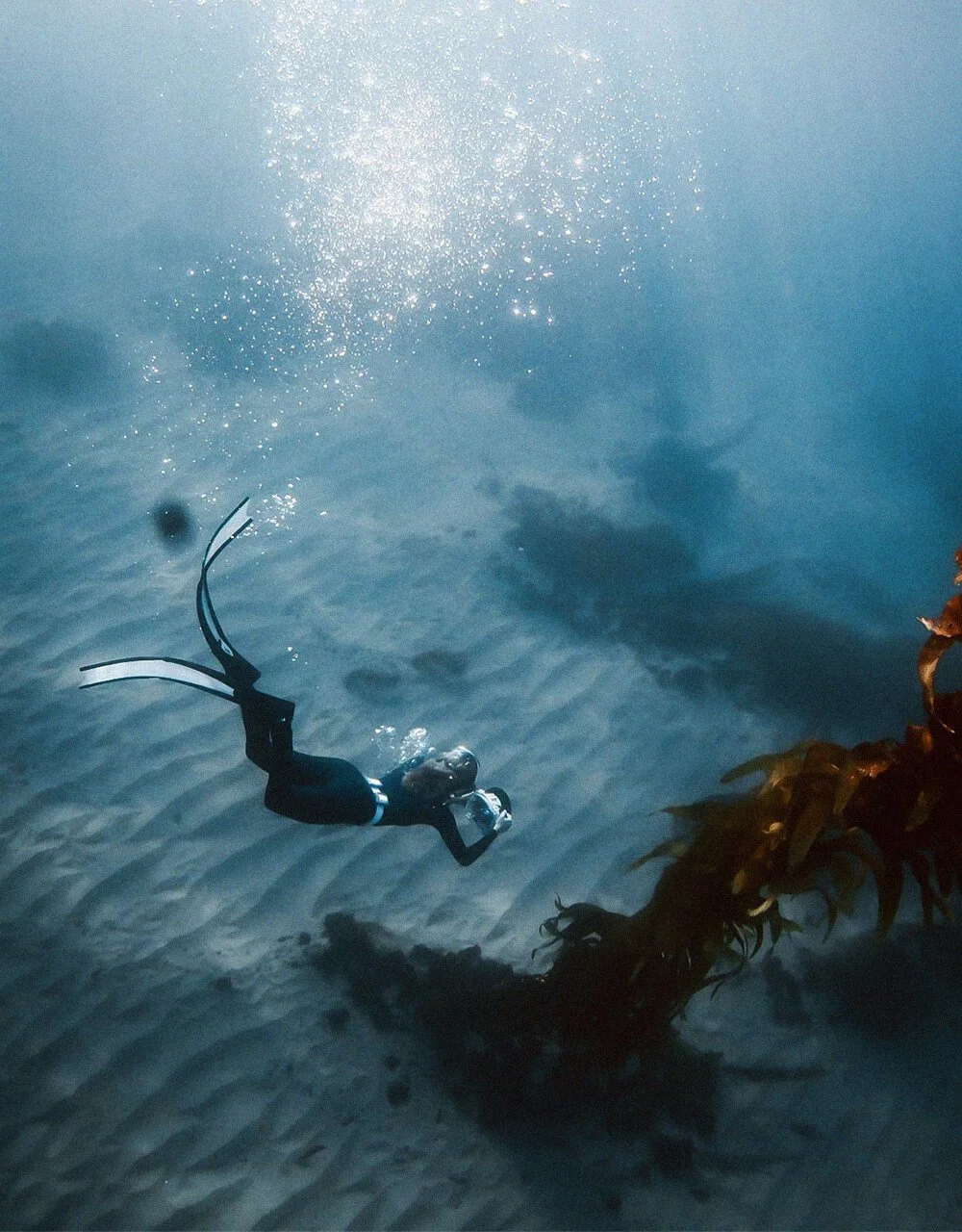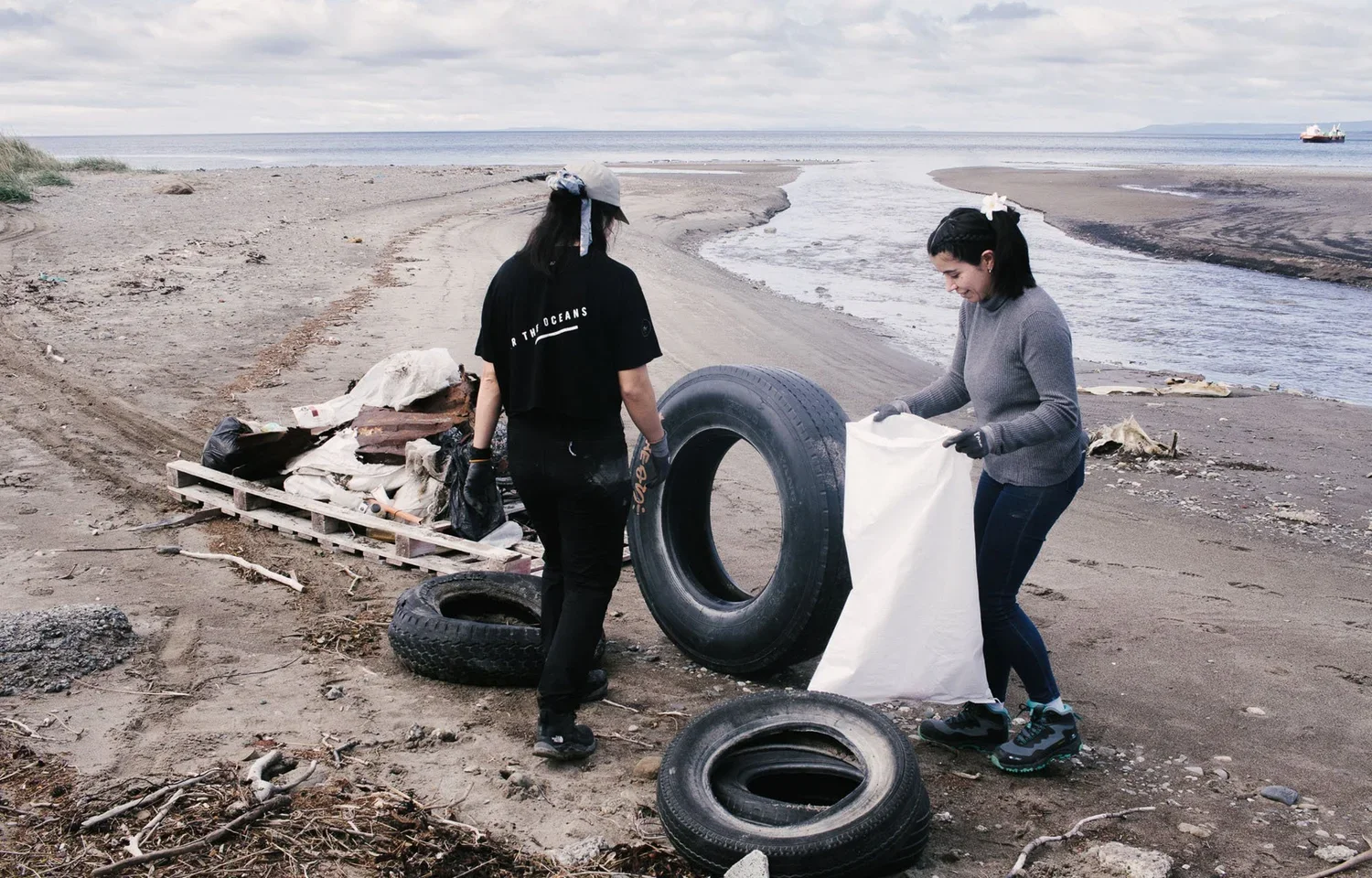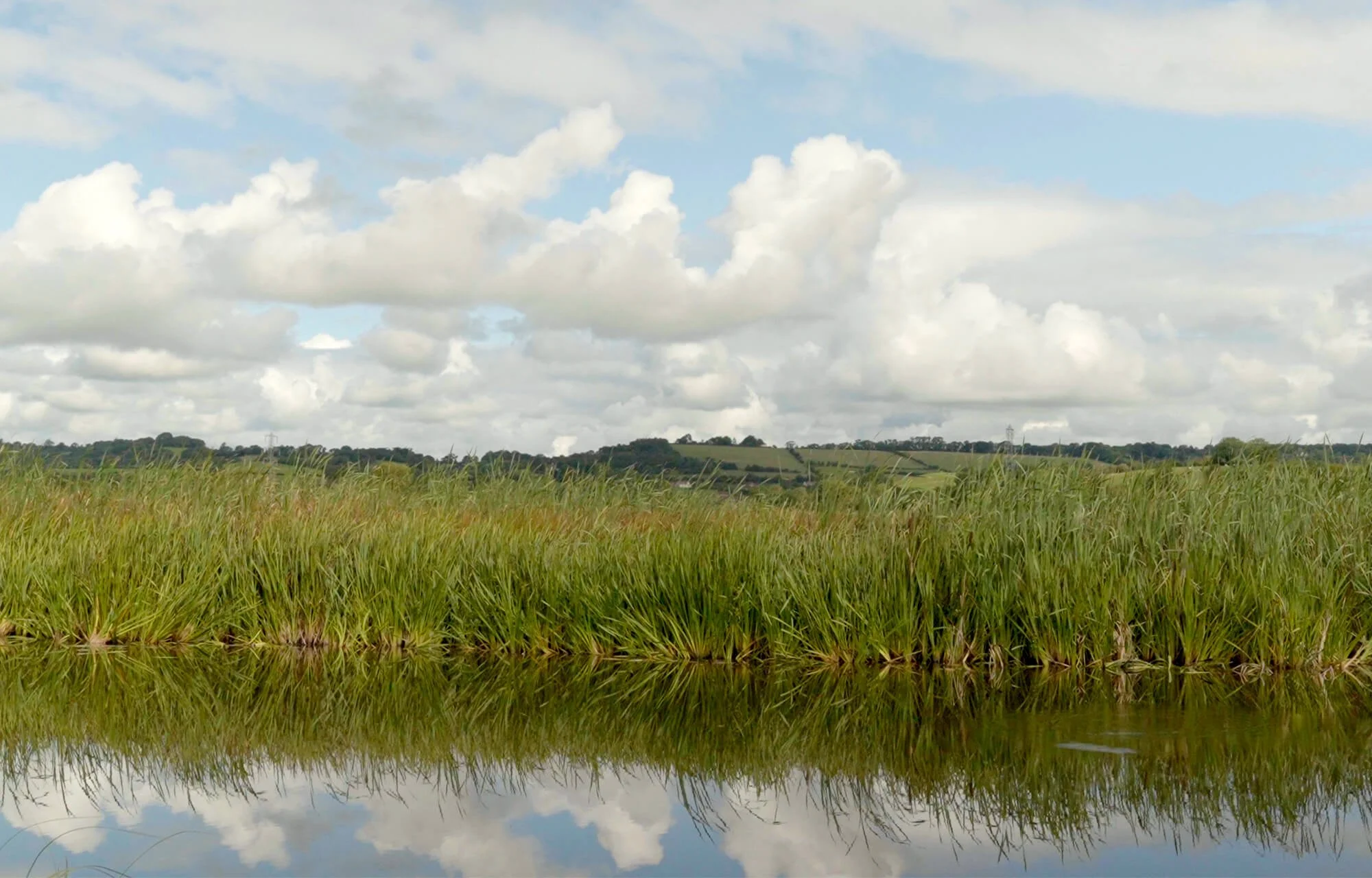Lessons from the South Pacific
14 women, 18 days at sea, 2382 nautical miles — plastic still present
In March, 14 women from different pockets of the world set sail on a journey with eXXpedition across the south Pacific Ocean to share knowledge and conduct research by collecting and analyzing plastic samples from on shore and the open ocean along with way. Parley collaborator Tavake Pakomio represented her home island, Rapa Nui, on what was meant to be a 25 day voyage to Tahiti, but the world outside their remote bubble had other plans.
As the pandemic continued to develop, they were forced to make the decision to cut the expedition short to 18 days. Though their time on the open ocean ended sooner than expected, they still had the unique opportunity to connect with the natural elements of our Earth in the most pure form and conduct necessary research on plastic pollution to put us one step closer to finding solutions we need. We caught up with her to hear about her experience aboard the vessel.
SPACE TO THINK
Tavake’s key takeaways from the open ocean
Even in a vast and uninhabitable area as the Pacific we still found little particles of plastic that are produced and come from land. Plastic is a material that we can’t “escape” or pretend it will disappear. We must work from the source where plastic is first produced, avoid the use of plastic, intercept it from our coastlines and of course redesign what we can't eliminate. Plastic is everywhere in our ocean but is produced in land! And we can do things better.
Science is key! Studying the state of the South Pacific Ocean, taking samples, being out there and seeing how nature and weather behave is so important to understand the environment and how everything interacts together. Studying the distribution, amount, and characteristics of plastic in the ocean is very important to gather information for solutions at every level. We can't fix what we don't know.
Having a heterogeneous grouping of women sailing together gave me the opportunity to see the plastic situation and human approach from many different perspectives. There were artists, anthropologists, health workers, a model, biologists, skippers, etc. It was a great opportunity to spread the message, learn from each other and share amazing experiences – creating even a bigger network for collaboration and projects. This group taught me how important it is to implement solutions involving everyone and every perspective because the plastic crisis is so diverse too. There is not one single solution or fix all to solve this problem. It is a global situation and must be solved as so.
Sailing is an important and very useful way to study the ocean. It allows you to stay calm and take time to observe and understand the dynamics of nature. The way wind, waves, the sun and the sky interact with each other and work in unison to move the boat without fuel or external power is incredible. The boat itself is a sustainable environment where resources are not infinite: you have to share food, water and space with your crew. Being out there in the ocean is something that everybody should have the chance to feel that the ocean as part of us and understand why it is so urgent to stop destroying it.
Nothing is impossible when you have a pure sense in your heart and when you want to do the right thing. In general, many of us know and understand how we can protect nature and what are the habits that are polluting it. We are in the era of information and now more than ever we can know wherever we want. Communication is in our hand closer than any other time. Governments organize climate change summits, treaties, congresses, education, etc – but even with technology, modernity and research we as nations, individuals and organizations haven't changed enough.
Q & A with Tavake
Did sailing in the open ocean increase your love and appreciation for the seas?
Fully seeing the magnificence of the ocean, its beauty and having this intimate coexistence for three weeks was a unique opportunity. What my eyes could see and my heart could feel, it touched my whole being. Every time I am in nature I wonder how to protect it. On this trip the question made more sense than ever, it is no longer a question but the main purpose in my life right now. It was a mixture of many things, of reaffirming what I thought about conservation and also of confirming many things that I felt but did not know how to "name" them. I firmly believe that we came to this world to have experiences and today I believe that experiences are very necessary to get to know each other and understand each other. The same goes with nature. We protect what we love and we love what we know.
Are you going to take any findings or processes you learned on the boat back to your NGO in Rapa Nui?
I would love to implement the same science protocols we worked with on the boat around Rapa Nui coastlines with schools and the community through our local NGO. To better understand the state of the ocean that surrounds our land and to create research with my local community, give them an opportunity to be involved and closer to science. I think it is important to create these opportunities for the locals and not always just host research from outside, to make work more valuable and accurate because we can do it.
What were the most important findings from your research?
We found just a few small pieces of plastic, a little part of fishing nets and a small part of plastic film were the most. I think that not finding a lot of plastic in this specific route is a very important topic and it gives steps to research more about distribution and how works on the South Pacific Islands can develop.
Did you encounter any interesting animals along the way?
We expected to see whales but didn't see any. But two days before arriving in Tahiti a big shoal of yellowfin tuna followed the boat for like two hours, surrounded by birds. It was a beautiful show as they were hunting and jumping all the time. Then when we arrived at the marina in Tahiti a large family of dolphins came to welcome us — they were next to the boat singing and jumping.
Did sailing make you realize anything new about human relationships to the oceans?
Sailing is a great way to understand sustainability. It is incredible how a boat can be moved by the wind, with a trained crew and the right equipment. Basic facilities can be supplied with solar panels and windmills on deck but always with caution. Food and water must be organized and planned in advance for the whole trip and more for reserves. Space is very limited so waste management must be done effectively and using just what’s necessary.
If we are able to plan like that specifically to sail in the ocean, why don't we plan our human behavior on land (that affects the planet and ocean) to live in a way that is precise, responsible and conscious? What are we missing? Why do we forget that human life and nature depends on ocean health? Sailing gives you the opportunity to have this perspective in this small scale – but one that can be extrapolated to our daily lives.
Was fear ever a factor for you on this trip?
At some point my biggest fear was not being good enough or not being up to the mission. Last year was a very busy one and I was doing a lot of things – so it was hard to realize and feel the impact of my work. I remember I met Emily Penn last year at the Ocean Uprise camp and learned of her mission based program, eXXpedition. I never saw myself in such a project and then when I had the chance I couldn't believe it but it was a great opportunity to share my experience and realize that we as a community are doing very important things, not just for ourselves but for the future generations, our culture and heritage. Ocean conservation is about many things and sharing our unique reality is a big part of it. As islanders and ocean lovers we have the responsibility to make others see what we can see every day.
Do you think having to adjust to a new life on the boat has helped you adjust to the new world of lockdowns and quarantine?
Fully. There are so many things to get used to living on the boat in a short time and you realize then is easy and worth it to everybody. The COVID-19 era is tough but at some point pushed the world to stop and gave a breath to the planet and nature, a space for us to rethink, revalue, reorganize.
Even being locked down is easy after the boat, the boat makes you resilient and this is very important for this time when we have to face many changes, a lot of environmental, social abuse and injustice. Being at sea makes you strong and gives me hope that together, we can overcome this.




